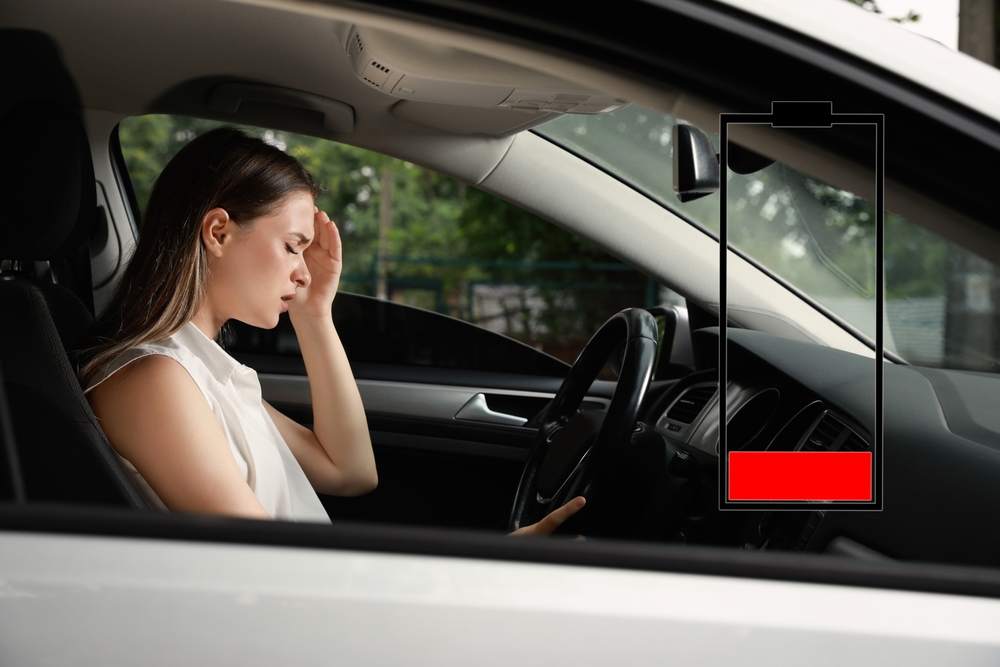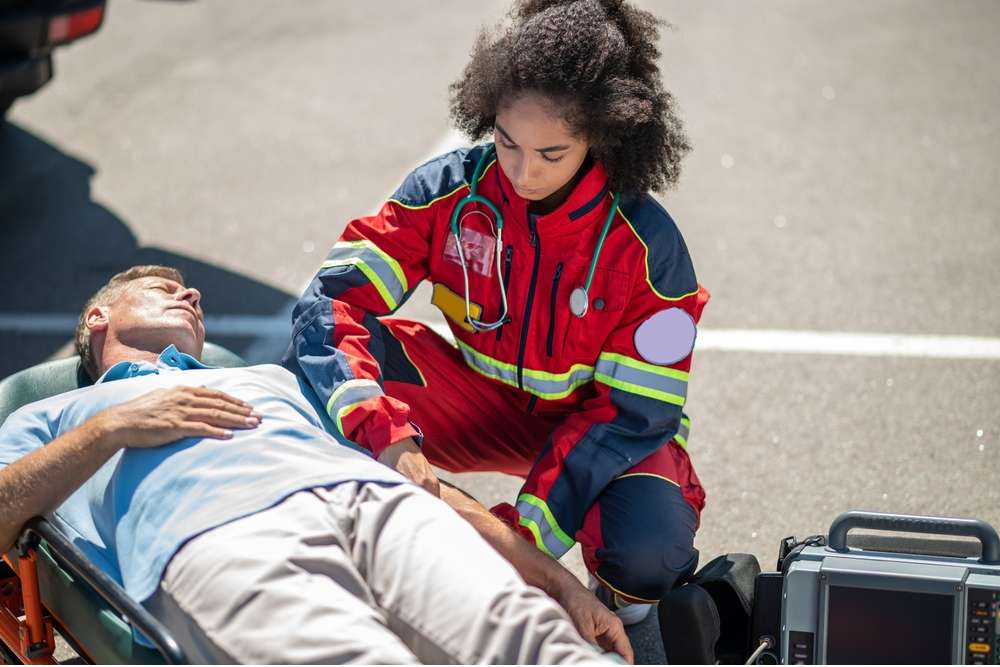 Millions of car accidents happen each year, and many of them are not entirely avoidable. In some cases, a medical condition can impair your ability to drive safely and end up causing a wreck. Whether you have a chronic health condition that can impact your driving abilities or you experience a sudden medical emergency, you can lose control or even lose consciousness. This can put you and others on the road around you in serious danger and lead to a car accident. While you might be tempted to fight through not feeling well, shrugging off potential warning signs can end up costing you big time. There are some medical conditions that are more likely to significantly impact you or another driver’s ability to drive safely. If a medical condition impairs a driver’s abilities on the road, it could result in a wreck and car accident injuries for both the drivers and passengers in the vehicles involved. Here’s what you need to know about the top medical conditions that cause car accidents and how to get the care and treatment you need after a wreck.
Millions of car accidents happen each year, and many of them are not entirely avoidable. In some cases, a medical condition can impair your ability to drive safely and end up causing a wreck. Whether you have a chronic health condition that can impact your driving abilities or you experience a sudden medical emergency, you can lose control or even lose consciousness. This can put you and others on the road around you in serious danger and lead to a car accident. While you might be tempted to fight through not feeling well, shrugging off potential warning signs can end up costing you big time. There are some medical conditions that are more likely to significantly impact you or another driver’s ability to drive safely. If a medical condition impairs a driver’s abilities on the road, it could result in a wreck and car accident injuries for both the drivers and passengers in the vehicles involved. Here’s what you need to know about the top medical conditions that cause car accidents and how to get the care and treatment you need after a wreck.
Seven Medical Conditions That Can Cause a Car Accident
 Unfortunately, it is quite common for people to get behind the wheel even when they aren’t feeling 100% up to it. Perhaps you feel a cold coming on, or you didn’t get enough sleep the night before. It might not seem like a big deal, but driving when you are not at your best can dull your instincts and reaction times. Here are seven medical conditions that could impair a driver’s abilities and result in a car accident.
Unfortunately, it is quite common for people to get behind the wheel even when they aren’t feeling 100% up to it. Perhaps you feel a cold coming on, or you didn’t get enough sleep the night before. It might not seem like a big deal, but driving when you are not at your best can dull your instincts and reaction times. Here are seven medical conditions that could impair a driver’s abilities and result in a car accident.
Alzheimer’s Disease
Millions of Americans have a diagnosis of Alzheimer’s disease, which is a brain disorder and form of dementia that impacts memory, thinking, and behavior. Symptoms gradually increase with time and can start to affect someone’s ability to complete simple, everyday tasks. If you or someone you know has Alzheimer’s disease, it is important to understand that the gradual nature of this kind of disease means that it might become difficult or impossible to drive safely. People with Alzheimer’s need to stop driving when they start to have difficulty remembering things, like their address or how to get to the grocery store. Alzheimer’s can also impact decision-making skills, and physical changes like deterioration of reflexes, coordination, and strength can make driving unsafe.
Cataracts
A cataract refers to a condition where the normally clear lens of the eye starts to become cloudy. Proteins in the eye start to break down, and it can start to negatively impact your vision. Cataracts are common in older adults as they tend to develop slowly over time. Some of the first signs of cataracts can be cloudy or blurry vision, double vision, and poor night vision. Even these initial symptoms can negatively affect your full range of visibility when driving and make it difficult for you to see clearly. When you are driving, cataracts can make it more difficult to see other vehicles on the road, pedestrians in the crosswalk, or the ability to read road signs effectively. Because cataracts can cause you to see glares or halos around light sources, this condition can make it especially dangerous to drive at night.
Diabetes
Diabetes is a chronic health condition that occurs when your blood sugar gets too high. If your body does not turn food into energy properly, you could end up with too much sugar in your blood, known as high blood glucose. There are different types of diabetes, and each has specific symptoms and experiences. When your body isn’t making enough energy, it can lead to dizziness and fatigue, which can significantly impact your ability to drive safely. Other symptoms of diabetes, like problems with vision and numb, tingling hands and feet can also make it difficult to focus on driving or impact your physical ability to do so safely.
Epilepsy
Epilepsy is a neurological condition that causes a person to experience multiple seizures. This brain disorder can lead to recurring seizures that may occur unprovoked, often caused by abnormal electrical activity in the brain. Because you cannot always predict when a seizure will occur with epilepsy, this can put you at great risk while driving on the road. In fact, driver’s license eligibility in certain states may be limited for people with health conditions like epilepsy. In general, the rules of the road dictate that you must be free of recurring seizures for a specific period of time before you can get back on the road.
Heart Attack
A heart attack, also known as myocardial infarction, is a medical emergency where the heart does not receive enough blood flow. A heart attack may be caused by something that blocks arteries in the circulatory system that send blood and oxygen to the heart. Symptoms vary between men and women, and women are actually more likely to ignore the signs of a heart attack, in part because of how their symptoms can be confused with other health conditions. Common heart attack symptoms in men include sudden jaw, neck, or back pain, shortness of breath, and a squeezing sensation or pressure around the chest. Heart attack symptoms in women include pain or pressure in the lower chest or upper abdomen, along with indigestion, fainting, or extreme fatigue. If a driver experiences a heart attack while driving, it could lead to a serious wreck, car accident injuries, and sudden death of the heart attack victim.
Macular Degeneration
Macular degeneration is a disease that impacts the eyes and leads to vision loss. This condition specifically impacts the central field of vision in your eyes, so things directly in front of you might look blurry or unclear. This can make everyday tasks like reading, driving, cooking, or working more difficult. Someone with macular degeneration may also have difficulty seeing faces. The loss of central vision with macular degeneration can occur slowly over time or quite suddenly. Macular degeneration can significantly impair your vision while driving when you are unable to see things clearly.
Stroke
A stroke is a medical emergency where the blood supply to the brain is reduced or cut off, which prevents the brain from getting oxygen. Also known as a cerebrovascular accident, a stroke can cause serious damage to the brain when its oxygen and blood supply is interrupted. A stroke can cause one side of the face to droop or feel numb, and you may experience muscle weakness along the same side of the body. People who are suffering a stroke may also have difficulty speaking, trouble walking, and issues with coordination. Other symptoms of a stroke include lightheadedness, fatigue, blurred vision, and mental confusion. All these symptoms can have a rapid onset and significantly impair a person’s ability to function while on their own two feet, much less when behind the wheel of a car.
Medical Emergencies While Driving
In the event of a medical emergency, like a heart attack or stroke, do your best to safely pull to the side of the road. If you know the warning signs of a heart attack or stroke, you may have enough time to react and get to a safe place. Once you are out of traffic and hopefully out of danger of causing a car accident, try your best to dial 911 and give your location. Tell the 911 operator that you are having a medical emergency and wait for help to arrive. While you cannot always control how your body reacts to a medical emergency, you can try your best to keep yourself and those around you safe during a very tricky time. When first responders arrive, you should accept all medical attention and follow their orders to make sure you get checked out thoroughly by a doctor and receive the appropriate treatment promptly.
Other Conditions that May Impair Your Driving
Other conditions that may impair your ability to drive safely include the following.
Medication Side Effects
If you start a new medication, you might not be aware of how it will impact you. Some medications can have powerful side effects that could affect your coordination, strength, awareness, or thinking.
Extreme Fatigue
Avoid driving when you are extremely tired. While this might seem like not that big of a deal, accidentally falling asleep at the wheel can put you and others around you in serious danger. Whether you didn’t get enough sleep or have an untreated sleep disorder, extreme fatigue can impact both your physical and cognitive abilities to drive safely.
Cognitive Impairments
Certain mental health conditions may put you at greater risk for impaired driving. Cognitive impairments can negatively impact your judgment, attention, or ability to respond effectively while driving. Driving requires a wide range of skills, including cognitive skills, motor abilities, information processing, and memory.
Driving Under the Influence
Most people are aware of the dangerous effects of driving while under the influence of alcohol or drugs. However, many who do get into an accident while under the influence say they only had one drink or didn’t think it was that much. However, drunk driving can significantly slow your reaction time, judgment, motor skills, and depth perception. All of these impairments can put you at much greater risk of getting into a car accident and putting other people’s lives in danger.
How a Car Accident Doctor Can Help
 So, what do you do when you or someone you know gets injured in a car accident? The first thing you should always do is accept any medical attention offered at the scene. If you decline medical attention or say, “I’m fine,” and then start to notice pain or other symptoms later on, you can end up delaying treatment and making a small injury into something more serious. Once you get checked out by first responders or visit an emergency room, you will need to see a doctor for car accident injury treatment. Car accident doctors specialize in diagnosing and treating a wide range of injuries sustained in wrecks. Here’s what you can expect from a car accident doctor after a wreck.
So, what do you do when you or someone you know gets injured in a car accident? The first thing you should always do is accept any medical attention offered at the scene. If you decline medical attention or say, “I’m fine,” and then start to notice pain or other symptoms later on, you can end up delaying treatment and making a small injury into something more serious. Once you get checked out by first responders or visit an emergency room, you will need to see a doctor for car accident injury treatment. Car accident doctors specialize in diagnosing and treating a wide range of injuries sustained in wrecks. Here’s what you can expect from a car accident doctor after a wreck.
Comprehensive Diagnosis
Car accident doctors understand the importance of prompt medical attention and diagnosing your injuries correctly so you can get the quality treatment you need. A comprehensive diagnosis also includes detailed information that may be helpful for an insurance claim or lawsuit to prove the type and severity of your injuries. To diagnose a car accident injury, your car accident doctor will perform a thorough physical examination, discuss your medical history, and likely also request diagnostic imaging. Diagnostic imaging tools like X-rays, CT scans, or an MRI scan will provide your car accident doctor with detailed images of the injured area to help confirm a diagnosis and rule out other injuries with similar symptoms.
Individualized Treatment Plan
Once you have a diagnosis, your car accident doctor can provide you with a personalized plan of care. An individualized treatment plan is designed with your body in mind, taking into consideration any past injuries, health conditions, and how you may respond to treatment. No two people will have the exact same experience with a car accident injury, so it is important that your treatment plan address your specific symptoms and the root cause. Following through with your treatment plan alongside your car accident doctor is so important to your recovery process. Your car accident doctor will help you safely rehabilitate from your car accident injury and help you get back on your feet.
Visit AICA Orthopedics in Atlanta for quality treatment of car accident injuries. Our team of car accident doctors includes orthopedic doctors, neurologists, chiropractors, and physical therapists who work together to make sure you get the help you need. With several locations all across the metro Atlanta area, AICA Orthopedics offers car accident clinics near you with diagnostic tools like X-rays and CT scans on-site so you can meet with your car accident doctor and get the scans you need all in one convenient location.
